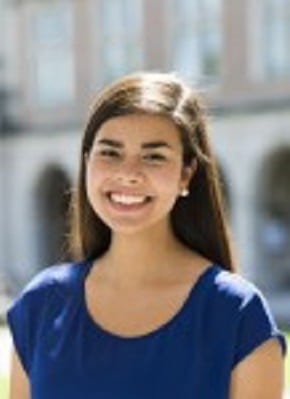Written by María José Ruiz, MD, undergraduate student at Washington University in St. Louis

Global health is a complex set of problems that undoubtedly requires a multidisciplinary approach. Global health considers the macro, and the local, the social complexities and the biological foundation of life. A rapidly emerging field, global health is multifaceted, and thus, difficult to confine to a field of its own. The increased interest and demand for training programs has led our university to create a variety of programs relating to global health including the global health tracks at the graduate and undergraduate level, and the Global Health Scholars Pathway at the medical school. Though these are remarkable programs, many of our global health endeavors, student groups, and programs, remain isolated from one another, specific to a department, school, or campus within Washington University.
As students, it is important to ask ourselves: “In what ways are we raising awareness about global health issues or contributing to advancements in the field?” In order to bridge the gap between campuses and address this question, my team and I began to plan the first university-wide, student-organized Global Health Week.
Global Health Week is a multidisciplinary, student-organized week of activities designed to educate and engage the Washington University and St. Louis community on a broad range of health care issues. The topics that will be addressed are relevant to the entire student body: undergraduate, medical, nursing, and social work students. They are relevant to our Wash U. physicians, health professionals and professors. They are relevant to St. Louis’s policy makers, human rights advocates, activists, patients, and all who seek to improve health care access, quality, and delivery.
We want this to be an opportunity for students to learn and engage in public and global health work that is currently happening at our university. More than a networking event, however, we would like for this to be a platform for students to explore global health and grapple with the understanding its intricacies. The planning of events alone has already expanded my understanding of global health.
In planning the screening of A Doctor of My Own, which explores the emerging stories of students at the newly opened University of Namibia School of Medicine, I understood the importance of developing training programs abroad.
In planning the service project at Nahed Chapman New American Academy, I further understood about the effects of immigration on health care literacy and access for children and their families in our own city.
In the deciding whom to invite for our speaker series, I was reminded that non-communicable diseases are a burden of disease in BOTH developed and developing countries. Cancer in low and middle income countries, for instance, makes up “80% of the global burden of cancer (measured in DALYs) [disability adjusted life years], and yet attract only 5% of global resources directed toward cancer care. (1) To further address this topic, Dr. Gharzouzi, a Guatemalan physician, will visit Washington University during Global Health Week.
]In exploring the political and economic dynamic of global health, I was disconcerted with the reality that many diseases, known as The Neglected Tropical Diseases, are a significant cause of DALYs worldwide, yet they lack funding for research and intervention because they do not affect profitable markets.(2) Dr. Peter Hotez, an expert in neglected tropical disease control, and the keynote speaker for Global Health Week, will be on campus and give two talks that underscore this issue.
Though the week will have a series of exciting events and engaging speakers, it is indispensable to admit that it will not provide a comprehensive view of global health. In future years, I hope that we consider how climate change, mental illness, or aging, to name a few, fit into the global health agenda. I hope that global health week inspires students, faculty, and staff to dedicate their professional lives to advancements in health, social justice, community engagement and service locally and globally. And though there are many challenges in these areas, I view the future with optimism.
References
(1) Nancy Beaulieu, David E. Bloom, Lakshmi Reddy Bloom, and Richard M. Stein. Breakaway: The Global Burden of Cancer – Challenges and Opportunities. A Report from the Economist Intelligence Unit, 2009.
(2) Farmer, Paul, Jim Yong Kim, Arthur Kleinman, and Matthew Basilico. “Chapter 11: Global Health Priorities for the Early Twenty-First Century.” Reimagining Global Health: An Introduction. 2013. 316. Print.